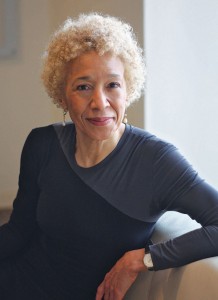
Negroland: A Memoir by Margo Jefferson; Pantheon, 256 pp., $25

My Russian sister-in-law has told me that when there is an especially well-laid table, it is not uncommon in Russia for someone to remark: “Ah, tonight, we will eat like white people!” Whenever you end up in comfortable conditions, whenever you find yourself without difficulties, so the thinking goes, you are living like white people. There is a deep satisfaction to this feat, of course, but there is also, by virtue of the sheer fact of having stated it, the recognition that, no matter the color of your skin, you are not actually “white.” It is precisely this bittersweet sentiment—along with heaps of insecurity and shame—that pervades Negroland, the Pulitzer prize–winning theater and literary critic Margo Jefferson’s often frustrating, at times penetrating reflection on growing up among the black Chicago elite in the second half of the 20th century.
“Sometimes I almost forget I’m a Negro,” Jefferson recalls her well-to-do mother, Irma, confessing. “It wasn’t a disavowal,” Jefferson writes, “it was her claim to a free space. She was talking about her happiness at that moment—how you feel when everything inside and around you is where it belongs.” When, in other words, you’re living like white people.
Territory like this demands to be explored, but Negroland—Jefferson’s title is her “name for a small region of Negro America where residents were sheltered by a certain amount of privilege and plenty”—too often merely gestures at an interesting idea or worrying implication without engaging it in a sustained and revealing way. Throughout the book, for example, she fleetingly refers to numerous light-skinned family members who make the excruciating decision to try to pass as white—including, somehow, her dear, brown-skinned older sister, Denise. Existential choices like these are an inexhaustible source of human pathos, the psychological bedrock of great works of literature, from James Weldon Johnson’s The Autobiography of an Ex-Colored Man to Philip Roth’s The Human Stain. And yet Jefferson declines to plumb it. Whether out of concern for their privacy or something else, she never allows these white Negroes to attain a third dimension on the page.
Of her sister’s apparently tortured racial politics in the 1990s, this is all we get: “Denise kisses her white boyfriend goodnight and steps into the waiting taxi … [the white driver] turns around at a stoplight and smiles. ‘I saw you and your boyfriend. My girlfriend is black. She says it’s hard for her sometimes. Is it hard for you?’ Denise of the burnt sienna skin arranges her face to look haughty. ‘I wouldn’t know,’ she tells him. ‘Both my parents are white.’ ” In specific, nongeneric terms, what kind of emotional turmoil leads a well-loved black woman in her 50s to reject herself this way?
We never find out because we are never allowed to see anything in depth—not even the author’s unexplained adult depression and fascination with suicide. Late in the book, Jefferson confides that during the era of Black Power and radical feminism, she lusted for a self-inflicted death. Fantasies of going out like Sylvia Plath so obsessed her that she once stuck her head in the oven to test herself, only to come to her senses by picturing the “ugly sprawl” she’d be found in. Instead, she sublimated these desires into jejune “death aphorisms,” several of which she reproduces: “I think more people should kill themselves. What incentives can we offer?” And then she is off to other subjects, displaying her undeniably eclectic taste and broad learning, name-checking Billie Holiday and Charlotte Brontë in swift succession. But to what end? We are scarcely any closer to understanding her motivations. In an odd way, the more she attempts to disclose, the more she succeeds in concealing herself in a blizzard of erudite tangents.
Still, there are flashes of profundity. Jefferson writes movingly of that special alienation reserved for upper-middle-class blacks. “This is a way to show my self-aware double consciousness,” she explains. “I descend from the belittled and despised; I descend from the rewarded too. This begins as a racial division, then becomes a class division, in which a sense of loss, injury, grief, becomes the possession of those with time to articulate it attractively. Unhappiness as an avocation.” But the insight dissolves as quickly as it appeared into pages of formal experimentation and self-indulgent prose.
Structurally, Negroland is excessively, almost antagonistically complex. Jefferson’s loosely chronological approach can be confusing, and she oscillates inexplicably between roman letters and italics, as well as the first person and the third (“Denise and Margo wear matching woolen coats with Persian lamb collars”). The form of the book so closely mirrors its content—self-conscious and pretentious—that one half suspects these defects are intentional, a kind of metacritique of the black bourgeois blues.
Of course, a memoir need not be politically attuned to or engaged with its time. And certainly, the insidious white supremacy Jefferson dealt with in her childhood remains a perennial concern. Still, for all of the fervor and urgency surrounding the condition of black America right now, this insistently self-referential memoir of a bygone era seems willfully aloof. It is difficult to imagine who, exactly, this book is meant to reach.



